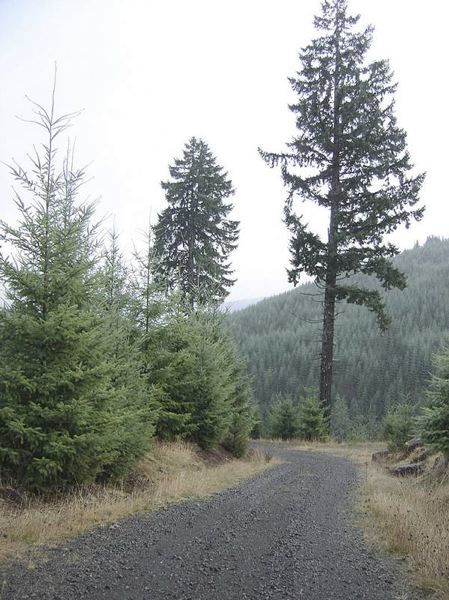Judge: Federal laws don’t shield Oregon from timber lawsuit
Published 8:00 am Thursday, June 8, 2017

- EO MEDIA GROUP - Fourteen counties and roughly 130 tax districts are involved in a $1.4 billion lawsuit that accuses Oregon's government of insufficiently logging state forests.
Federal environmental laws do no preclude a class action lawsuit against Oregon by local governments seeking $1.4 billion for insufficient logging.
The lawsuit, on behalf of 14 counties and numerous taxing districts within them, argues that Oregon’s forest management policies have deprived local governments of logging revenues from forests they donated to the state.
Attorneys for Oregon claimed that federal environmental statutes, including the Endangered Species Act and the Clean Water Act, effectively prohibited state forest managers from maximizing timber harvests on that land.
Linn County Circuit Court Judge Daniel Murphy has now ruled those defenses are not valid, since the plaintiffs allege Oregon’s forest protections surpassed the requirements of federal law.
The state government also argued it properly formulated the 1998 “greatest permanent value” regulations, which the plaintiffs claim impermissibly reduced logging levels.
Murphy has ruled this defense is invalid because the regulations could have resulted in a breach of Oregon’s contract with local governments, even though the rules were lawfully enacted “through legitimate process.”
The judge disagreed with Oregon’s argument that local government can’t sue over the contract while continuing to benefit from timber revenues, since a lawsuit “for partial damages is allowed.”
He struck several other defenses offered by Oregon’s attorneys, such as arguments the lawsuit was time-barred or was outside the court’s jurisdiction.
Oregon’s attorneys and the Oregon Department of Forestry could not be reached for comment on the ruling Thursday.
The judge’s decision removes significant obstacles in bringing the lawsuit to trial, said John DiLorenzo, attorney for the plaintiffs.
“I have no doubt this case is going to be tried to a jury,” he said. “They tried to blow us out of the sky but we’re still flying.”
DiLorenzo said he expects the parties will now focus on gathering evidence in preparation for a trial that would likely take place during the summer of 2018.
The judge’s findings regarding the federal environmental statutes “really cleared the decks,” resolving complications in the case, he said.
Oregon’s forest managers have gone beyond what is required by federal law, which requires protection for endangered and threatened species but does not mandate that the state government create new habitat for them, DiLorenzo said.
“If they’ve done that, they’ve breached the contract,” he said.
The lawsuit’s philosophy is not to change Oregon’s forest policy, but simply to alleviate a burden that’s currently borne solely by rural communities, DiLorenzo said.
“They should spread the costs among everyone,” he said.
The “burden of proof” is now squarely on DiLorenzo to prove that Oregon could have actually logged more without violating federal law, said Ralph Bloemers, an environmental attorney with the Crag Law Center who has followed the case.
“This will be very challenging, if not impossible, for him to do for a number of reasons,” Bloemers said in an email.
Federal agencies have in the past found that Oregon has failed to adequately protect waterways and fish species, he said.
“The historical record from these expert agencies amply demonstrates that, if anything, the Department of Forestry should have adopted more protections and logged less, not more, to protect the salmon fishery and restore rivers and streams to a functioning condition for our salmon fishery,” Bloemers said. “The same can be said for those forests with terrestrial species that have been harmed by past logging practices.”





